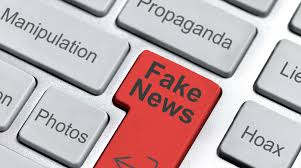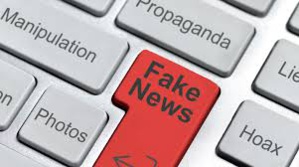The European Union wants tech companies Facebook, Google and Twitter to do much more to fight fake news amidst suspected threats from Russia, even though the European Commission acknowledged that the companies in question had ramped up their efforts to tackle the menace of fake news before the elections to the EU held last month.
Evidence of “coordinated inauthentic behavior” such as bots and fake accounts which had attempted to spread divisive content on online platforms before the elections to the European Parliament at the end of May was provided in a joint statement and report by the EU. It also added that it had identified “continued and sustained disinformation activity” by Russian sources that had attempted to influence voter preferences and reduce turnout of voters during the elections.
“The tactics used by internal and external actors, in particular linked to Russian sources, are evolving as quickly as the measures adopted by states and online platforms,” the statement said.
A decision on whether there was a “distinct cross-border disinformation campaign” targeting the European elections was too early to make, the EU report found.
Lawmakers around the world have been increasingly concerned about the role of the social media platforms such as Facebook, YouTube and Twitter in combating the spread of fake information in election campaigns over the past couple of years. With respect to some of their efforts in combating fake news and disinformation – such as employing teams for fact-checking and increasing selection processes of political advertising, that have been taken by these companies were applauded by the EU. However they also added that it is expected that the companies would do more “to maintain momentum and to step up their efforts.”
Disinformation and hate speech was spread across Germany, France, Italy, the U.K., Poland and Spain by more than 600 groups and Facebook pages just days before the EU elections, the block’s governing body said. 763 million user views was generated by these pages, it said.
In recent months, its fight against fake accounts has been stepped up by Facebook. 2.2 billion fake accounts in the first quarter of 2019 was removed by it, the company had announced in May. That number was almost double of what the company had removed in the preceding quarter. And before the EU elections, the company had also strengthened the restrictions about publishing of political advertising on its social media platform.
“Although Facebook extended its transparency to issue-based ads and Google and Twitter did not, questions remain about the effectiveness of the transparency measures taken by all signatories,” the EU report said. “Furthermore, the platforms did not make sufficient progress in increasing the transparency of websites hosting ads, partly due to the lack of engagement from the advertising industry.”
In 2018, a “Code of Practice on Disinformation” had been agreed to by Facebook, Google and Twitter, and had made written commitments to submit monthly reports about what they were doing to remove fake news from their platform before the EU election.
“People want accurate information online and the work undertaken under the Code shows how Governments, tech companies and trade bodies can work together to tackle online misinformation. But the fight against false news will never be over. That is why we are making significant investments to remove fake accounts and clickbait and to promote high-quality journalism and news literacy,” a Facebook spokesperson said in a statement Friday.
(Source:www.cnbc.com)
Evidence of “coordinated inauthentic behavior” such as bots and fake accounts which had attempted to spread divisive content on online platforms before the elections to the European Parliament at the end of May was provided in a joint statement and report by the EU. It also added that it had identified “continued and sustained disinformation activity” by Russian sources that had attempted to influence voter preferences and reduce turnout of voters during the elections.
“The tactics used by internal and external actors, in particular linked to Russian sources, are evolving as quickly as the measures adopted by states and online platforms,” the statement said.
A decision on whether there was a “distinct cross-border disinformation campaign” targeting the European elections was too early to make, the EU report found.
Lawmakers around the world have been increasingly concerned about the role of the social media platforms such as Facebook, YouTube and Twitter in combating the spread of fake information in election campaigns over the past couple of years. With respect to some of their efforts in combating fake news and disinformation – such as employing teams for fact-checking and increasing selection processes of political advertising, that have been taken by these companies were applauded by the EU. However they also added that it is expected that the companies would do more “to maintain momentum and to step up their efforts.”
Disinformation and hate speech was spread across Germany, France, Italy, the U.K., Poland and Spain by more than 600 groups and Facebook pages just days before the EU elections, the block’s governing body said. 763 million user views was generated by these pages, it said.
In recent months, its fight against fake accounts has been stepped up by Facebook. 2.2 billion fake accounts in the first quarter of 2019 was removed by it, the company had announced in May. That number was almost double of what the company had removed in the preceding quarter. And before the EU elections, the company had also strengthened the restrictions about publishing of political advertising on its social media platform.
“Although Facebook extended its transparency to issue-based ads and Google and Twitter did not, questions remain about the effectiveness of the transparency measures taken by all signatories,” the EU report said. “Furthermore, the platforms did not make sufficient progress in increasing the transparency of websites hosting ads, partly due to the lack of engagement from the advertising industry.”
In 2018, a “Code of Practice on Disinformation” had been agreed to by Facebook, Google and Twitter, and had made written commitments to submit monthly reports about what they were doing to remove fake news from their platform before the EU election.
“People want accurate information online and the work undertaken under the Code shows how Governments, tech companies and trade bodies can work together to tackle online misinformation. But the fight against false news will never be over. That is why we are making significant investments to remove fake accounts and clickbait and to promote high-quality journalism and news literacy,” a Facebook spokesperson said in a statement Friday.
(Source:www.cnbc.com)






